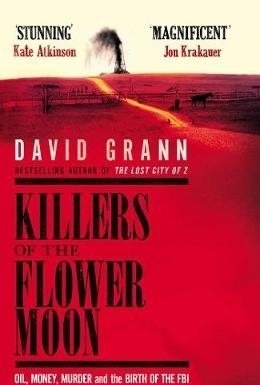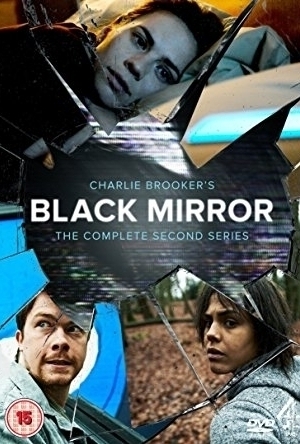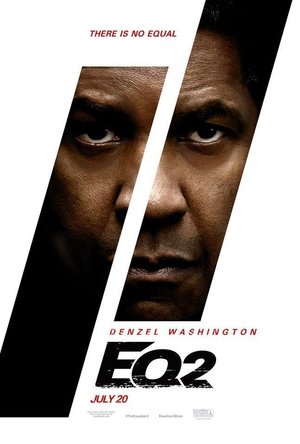Gareth von Kallenbach (980 KP) rated Legend (2015) in Movies
Aug 6, 2019
Legend is a story of Reggie and Ronnie Kray’s rise to power as the top gangsters of the East End of London, and beyond. However, it is told from the point of view of Reggie’s wife, Francis Kray (Emily Browning). Though, the movie starts with her meeting Reggie for the first time, and it is really a love story of how she fell in love with a gangster that would not change his ways. There is nothing solely remarkable about the plot of the movie, but it is definitely captivating. I went into the film not knowing much about the Krays, but glad that I didn’t as it might have marred my experience.
Hardy, however, is remarkable in his portrayal of the Kray brothers. Each brother having his own distinctive personality, and even distinctive looks despite being identical twin brothers. Ronnie, as Francis describes him, is a one man mob trying to take control of London. The only catch is that he is paranoid schizophrenic and has trouble in social situations. This leads to a high distrust of people, and some intriguing scenes during the course of the film, especially interacting with Francis and his brother. Reggie is the intelligent, methodical brother who has bigger goals and aspirations than his brother, but his loyalty to his family holds him back. He has a deep loyalty, and even in the height of conflict would not take his anger, or disappointment, out on Ronnie. This did not sit well with Francis, who desperately wanted Reggie to go straight, but still agreed to marry him, even against the wishes of her mother.
There is no rise without a fall, but I won’t give too much insight into that as it will help the movie win you over if you know less. But Hardy and Browning were backed by a wonderful supporting cast including the likes of David Thewlis, Christopher Eccleston, Taron Egerton, and Chazz Palminteri. Hardy himself brought some levity to the more serious scenes, though there were times where I was taken out of the movie as Ronnie Kray had a slight tendency to sound like Bane, Hardy’s previous role in the Dark Knight franchise.
If you enjoy British films such as Rock’n’Rolla, Lock, Stock and Two Smoking Barrels, or Trainspotting, you will definitely enjoy Legend. In fact, Legend is the first movie rated 18+ in the UK to break the box office record set by Trainspotting in 1996. That says a lot about the movie. Will I add it to my collection upon home release? The jury is still out on that, but it definitely was a great film and worth seeing.

KlangDings - House of Music
Education, Games and Stickers
App
Make music with the teeth-brushing walrus, the dancing bathtub or the yodelling spider. Play with...

inShort: Project & Workflow
Business and Productivity
App
This program allows you to build diagrams of processes and monitor their execution. As a rule, tasks...

ProSieben – Live TV, Mediathek
Entertainment and Lifestyle
App
KOSTENLOS FERNSEHEN mit der ProSieben TV App. Für Deine Shows, Stars, Blockbuster und Lifestyle...
Hazel (1853 KP) rated Killers of the Flower Moon: The Osage Murder and the Birth of the FBI in Books
Dec 7, 2018
It is well known that throughout history, facts have been omitted from history books. Written accounts of events ostensibly make important figures and countries appear to be in the right, whereas reality reveals otherwise. One such exclusion is the fate of the Native Americans inhabiting the southern states at the beginning of the 1900s. Children are brought up to believe the stories that “Red Indians” are bad and the cowboys are good, but this was unlikely the case. David Grann has researched into a particular period of Native American history that most people may never have heard of.<I> Killers of the Flower Moon</I> reveals the horrors innocent people faced at the hands of perfidious criminals.
The majority of the book is written as a third person narrative, recounting the lives of some of the members of the Osage Indian Nation in Oklahoma. White people, believing themselves to be superior, had forced the natives off their homelands and onto rocky, unwanted ground. What they did not anticipate, however, was the abundance of oil residing beneath the surface. The Osage went from being oppressed to being the wealthiest people in the state. Full of avarice, the whites were not going to let them get away with this fortune for long.
David Grann takes a particular interest in Mollie Burkhart, an Osage member with a white husband. Mollie had three sisters, but within a few short years they were all dead, and so was her mother. Believing they had been murdered, Mollie fears for her life. Other Osage members were also being killed, as well as those who tried to investigate the spreading slaughter. However, the case remained stubbornly unsolved.
Nevertheless, there was still hope for Mollie after the arrival of Tom White, an agent of the soon to be known as Federal Bureau of Investigation (FBI). Determined to get to the bottom of the so-called Reign of Terror, Tom and his team carefully analyse the behaviours and motives of the disingenuous citizens, narrowing down the suspects until eventually finding their duplicitous killer.
Learning about this unknown period of history is eye opening and offers a completely new view on the relations between whites and Native Americans. It was a time of prejudice and racism, not unlike the attitude towards black people emphasised with the civil rights movement in the mid-1900s. Greed was a significant motivator, particularly where making money was involved. But, David Grann does not stop here.
The final section of <i>Killers of the Flower Moon</i> is written from the author’s perspective. As a staff writer at <i>The New Yorker</i>, the evidence of the Osage murders case intrigued David Grann, but he was concerned about some unresolved holes in the story. Determined to uncover the truth, Grann conducted his own research to discover the culprits behind the undocumented murders unrelated to Mollie Burkhart’s family. What he stumbles on highlights the severity of the dark fate the Osage Indians were threatened with.
Despite being written as a narrative, it is obvious that <i>Killers of the Flower Moon</i> is a work of non-fiction. It lacks emotion and character insight, however, since it is not meant to be a fabricated story, these elements are not required. Instead, it shocks and disturbs the reader with its unbelievable truths.
An extensive biography proves the authenticity of David Grann’s revelation. With the reinforcement of FBI files, jury testimonials, statements, court transcripts, letters, telegrams, diaries and confessions, Grann produces a strong historical record of events that should not be glossed over. Without authors and books such as <i>Killers of the Flower Moon</i>, people will blindly go around believing falsehoods. The truth needs to be discovered, and readers can start by reading this book.
Kirk Bage (1775 KP) rated Black Mirror - Season 2 in TV
Mar 3, 2020
Hayley Atwell, best known as Captain America’s squeeze in the MCU, Carries the emotional weight of this episode in beguiling style. Not for the last time Black Mirror enters the territory of death, grief, loneliness and questions of a tech-aided afterlife. If it were possible to bring a loved one back in physical form, even though we knew it wasn’t really them, would we be tempted to do it? Entirely believable as a concept, considering the amount of data we are storing about ourselves on social media and in other digital ways. Although any kind of clone as good as Domhnall Gleason is a bit far fetched for now. What works here is realising that no matter how good a facsimile is, it is the myriad of tiny details that make a person that we miss the most, even the imperfections. Genuinely moving in its best moments, and a strong start to season 2 in 2013.
White Bear - 7.5
White Bear, the first of the “blind” episodes, where we as viewer are thrown into a situation with no explanation or context, was the first Black Mirror episode I ever watched. I remember being blown away by the dark concept, compelling nature of the minimal narrative, the cunning twist, and the boldness of the statement seemingly being made. So many themes are going on at the same time here: true crime as voyeuristic entertainment; the moral idea of an eye for an eye, brainwashing, and whether torture under any circumstance can be justified, for starters. Looking back, it isn’t the most rounded tale in the canon, or the best acted, but it is certainly very memorable. It also saw the birth of the White Bear symbol, which pops up in other episodes regularly, if paying attention. What is its meaning? The jury is still out!
The Waldo Moment - 6
The political apathy of a nation, and hatred of the personality flaws of our politicians could lead to a figurehead without real policies being elected and revered – it isn’t a very strange idea in 2020 at all. Many younger voters have been incited to demand change, without any idea of what that change should entail. So, in concept, this episode is right on the money. Trouble is it isn’t well written enough to sustain the drama or intrigue in the way the best of the canon do. The shock value is low, and therefore the reaction is “meh, fair enough”. For me, the first real blip in quality control for the series.
White Christmas - 8.5
This was the transition episode that saw Black Mirror make the big money move from Channel 4 to Netflix. Although now bundled into series two, it was a 21 month wait after The Waldo Moment before over 2 million of us settled down to this Christmas gift in 2014. It comes over as an anthology within an anthology, with John Hamm and Rafe Spall telling tales in front of the fire whilst on a “job” together in the cold wilderness of an unknown location. It is laden with ideas of technology back-firing, and is very satisfying in how quickly it moves through the plot points. The chemistry of the two lead men is great; the arrogance of one and the nervousness of the other allowing for some beautiful twists and turns. Essentially, the whole thing is either a re-working of ideas already used, or a precursor to future ideas that will be more fleshed out. Not that it really matters. This is the highest rated individual episode on IMDb, and the reason for that has to be its accessibility. The balance between being creeped out and entertained is just about perfect.
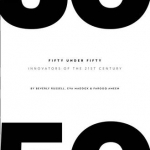
50 Under 50: Innovators of the 21st Century
Eva Maddox, Beverly Russell, Farooq Ameen and The Images Publishing Group
Book
Features design innovations that have become the visual models for idea advancement worldwide. "...a...
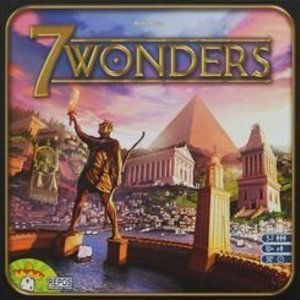
7 Wonders
Tabletop Game Watch
You are the leader of one of the 7 great cities of the Ancient World. Gather resources, develop...
BoardGames
Bob Mann (459 KP) rated The Equalizer 2 (2018) in Movies
Sep 28, 2021
Washington returns here as the righter of wrongs, now working as a Lyft driver in Boston (clearly Uber either lost the bidding war or they were not considered to be as cool a brand anymore). Through his job he crosses paths with various troubled souls and is often able to help: sometimes with just an encouraging word; sometimes with more physical activity! By way of validating his good guy credentials, he also takes under his wing Miles (Ashton Sanders) – a local black kid at risk of being dragged into the Boston gang scene.
But this is all window-dressing for the main plot, involving bad guys (for reasons that escaped me) tidying up a lot of CIA loose ends in Brussels in a very brutal way. In charge of the investigation is Robert’s ex-boss Susan Plummer (Melissa Leo) and to help out further Robert has to ‘reappear’ to his ex-partner Dave York (Pedro Pascal). As in the first film, events lead to an explosive western-style showdown.
Directed again by Antoine Fuqua, the film oozes style from the impressive opening shots of a Turkish train, where the cinematography by Bourne-regular Oliver Wood is exceptional. The action scenes are well-executed, and includes a superb science experiment that will puzzle any viewer who thinks “hang on a minute – flour doesn’t burn”!
Reading again my review of the original film, I went off on a rant about extreme screen violence in sub-18 certificate films. There is certainly – as the British film censors (the BBFC) describe it – “strong violence” in this film, with some pretty brutal murder scenes. If anything though I thought the violence was a little less gratuitous this time around, which I welcome.
Denzel is the greatest asset of this film though. He acts up a hurricane (literally), and without his calm and powerful presence at the heart of the film, this would just be A.N.Other generic thriller. It’s also great that this time around the excellent Melissa Leo gets more screen time, as does her husband played by Bill “Independence Day” Pullman. (Is it just me that gets Mr Pullman confused with the late Mr Paxton? I spent all of this film thinking “Oh how sad” though all his scenes before I realised I was grieving for the wrong guy!). In terms of mistaken identity, this film has another in that a key villain Resnik looks far too much like Mark Wahlberg, but is actually Canadian actor Jonathan Scarfe.
Where the film stumbled for me was in having too many parallel “good deed” sub-plots. One in particular – you’ll know the one – feels completely superfluous, beggars belief and could have been excised completely for the DVD deleted scenes.
Do you need to have seen the first film? No, not really. There is exposition about McCall’s back-story, but if this was covered in the first film then I had completely forgotten it. It certainly didn’t detract from this as a stand-alone film.
A cut-above the norm, Washington’s solid performance makes this an entertaining night out at the flicks.

